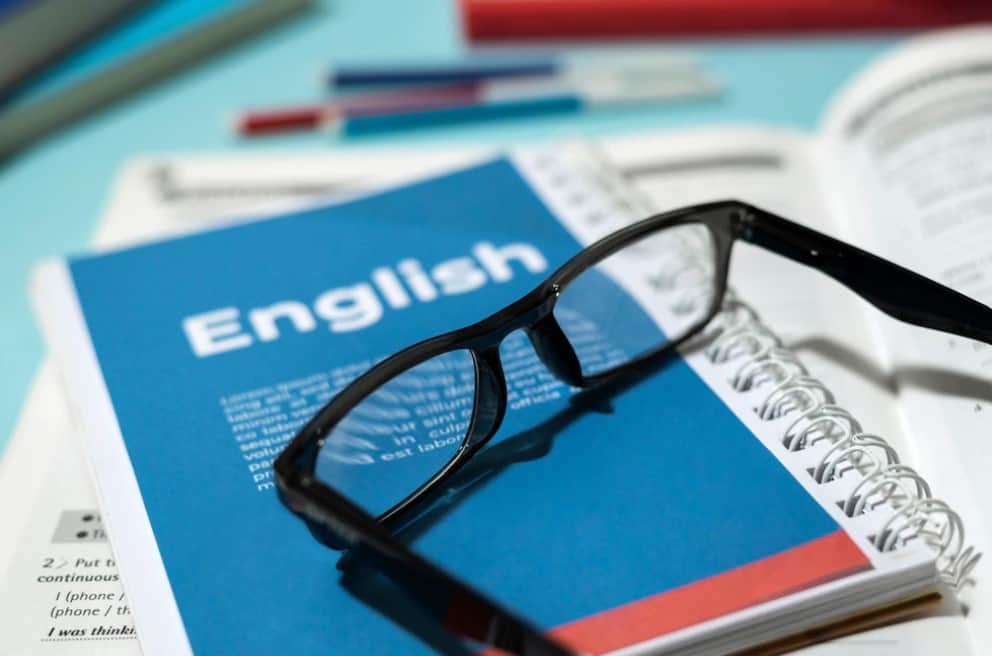
As a student, you’ve probably wondered, “What IELTS score do I need to get this visa?” In many cases, the answer may cause you to panic, as many of you will need to obtain the magic 7 in order to apply for a specific type of visa.
Many candidates choose to study independently using online materials, while others enrol in a course at an English college in Australia. Regardless of which option they select, candidates frequently struggle to achieve a 7.0. Here are some ideas to help you achieve your IELTS goals.
What is the IELTS Band Score?
After passing your IELTS exam, you will be assigned a band score between 0 and 9. The total score is the sum of the individual scores from the four sections. They are equally weighted using a tabular form of band scores.
The difference in individual scores in each section is not more than one point, which means that if you scored higher in one area, such as reading or listening, it would only take fewer points to advance to the next level of competence. IELTS Training will help you understand how IELTS is scored and how you can improve your score.
The total band scores are rounded up to the nearest whole or half band. It is also possible to obtain.5 scores. For example, if the final score is not a precise half or total score, it is pushed to the nearest whole or half score based on the most recent. An overall 6.1 is moved to band 6, and an overall 6.75 is moved to band 7.
Why it’s difficult to get Band 7?
Many people do not achieve the required and desired band scores. If you are one of those people, don’t worry because we will go over some practical and sure IELTS tips to help you get the band scores you want. Sit back, relax a bit, and read.
Find out your weakness
Before you begin studying for IELTS tests, or even planning for them, you must first identify your areas of English language weakness and strength. Knowing these areas will give you a clear understanding of where to focus more attention and ensure that that particular area does not have a negative impact on your overall score. For example, if you have difficulty listening, you should prioritise listening tests over other tests.
First and foremost, you should seek assistance in determining your weaknesses and why you are unable to achieve the 7.0 level. Please keep in mind that your grammar and syntax are evaluated in addition to your reading, writing, speaking, and listening skills in an IELTS test (word order). Candidates must understand what examiners look for when scoring tests.
This way, you’ll know what to work on to improve your skills and get that coveted 7.0. The IELTS Public Descriptors are available online and indicate what you need to know/produce in order to achieve a specific score.
Find out your level
We know of candidates who have taken the test multiple times and still receive a 6.5 in either writing or speaking, or whose scores are inconsistent, ranging from higher to lower. Is it because of the IELTS testing centre? Is it due to the examiner? In most cases, it is the candidate’s that is insufficient to provide consistency.
It is not enough to be able to write in English. You must understand how to do it correctly, what structure to use, what language/vocabulary to use, how to put the words in a sentence, how to combine words naturally, what grammar structures to use, how to use complex grammar, and so on. Many IELTS candidates refer to them as tips, but are they really tips? Is it something you can learn in a day? NO is the answer. If you do not accept this answer, you may need to repeat the test several times to persuade yourself. This will cost money and time, but it is ultimately up to the individual.
Find out exactly how to do the test
Another myth is that taking the test at a specific IELTS centre will help you score higher. It is, however, a myth! We are aware of candidates who have taken the IELST test multiple times in order to improve their score from 6.5 to 7.0. When candidates score 6-6.5, they believe the next step is to score 7. IELTS candidates DO NOT BENEFIT FROM LUCK. You must understand what the test entails and how to conduct it. The gap between 6.5 and 7.0 is enormous, and candidates continue to take the test in the hope that the next one will bring miracles. Unfortunately, this is not the case.
Perfect grammar, for example, does not guarantee a 7.0. It is not so much how correct it is as it is how complex it is. The highest grammar score you can get is 5.0 if you only use short sentences (simple clauses) with one verb or connect sentences with ‘and’, ‘or’, ‘but’ and they are all correct. A high level of complexity is required to achieve a 7.0 in grammar. What exactly is complexity? The ability to make use of subordinate clauses (relative, conditional, purpose clauses, etc).
Furthermore, candidates believe that if they can use the popular linking words (Furthermore, Furthermore, In addition, etc.), they will receive a 7.0. No, because when candidates use these linking words, they stop using complex structures and other ways of connecting ideas, which add variety to their writing. A 7.0 in IELTS is guaranteed by complexity and variety.
Get Professional Assistance
An IELTS preparation course is a widely used weapon that provides you with the necessary tips and tricks to achieve the desired band scores and, most importantly, the IELTS material. The course allows you to study and obtain materials in one location while under the supervision of trained and professional staff. If you are unable to attend an IELTS course, hiring a qualified tutor will be necessary to prepare you for the big day.
Practice Makes Everything Perfect
Yes, that is correct. Practice is essential for passing the IELTS test with the desired band scores and boosting your confidence. Aside from reading IELTS material, you should go the extra mile, which would also be enjoyable. You can prepare for the listening test by listening to English songs, news, podcasts, or watching movies. Watching movies with subtitles will also help you improve your reading, listening, and synchronisation skills.
You can even practise your English-speaking skills in front of a mirror with your friends and family. You can also record yourself telling stories and listen to them to improve your grammar, accent, and pronunciation. Reading English newspapers and skimming through texts can also help with reading tests.
Correct Your Mistakes
Many candidates make this error and fail to achieve the required band scores because they do not correct their errors. You should always take careful notes on your mistakes in all four areas and rewrite your material, ensuring that all grammar and spelling errors pointed out by your teachers are corrected, as incorrect spellings and punctuation result in point loss. It will vastly improve your skills in all areas, as well as your learning abilities.
Not having enough time to study
Another pattern I’ve noticed is that many ILETS students are simply too busy to study. Many people have obligations, family responsibilities, work pressure, fatigue, and so on.
The best way to solve this is to keep track of what you do on a daily basis. How much time do you devote to it? You may discover that you are spending an hour watching YouTube or browsing Facebook instead of studying. You’d be surprised how much time you waste on social media, Instagram, or Netflix.
Make the time, even if it’s only 30 minutes per day.
Focus on the key areas where you need to improve, for example, vocabulary. Download an interesting English podcast that you can listen to on the train while commuting to work, make notes on new words, use your commuting time to pick up new vocabulary, read news topics, and listen to news stories.
Make your own study schedule, get a calendar, and mark off the days until your exam, and every day work on a weak area that needs to be improved.
Prepare a Mock Test
This practice will prepare you to deliver confidently under pressure in real-world situations. You can take your own test in the same 2 hours and 45 minutes as the test day. It will also assist you in managing time, improving your writing speed, and managing the writing, listening, and reading tests concurrently.
Go to the Official IELTS Website
Do not dismiss this suggestion. The official IELTS website is one of the best places for candidates to get authentic information about the material, rules, format, and useful tips for IELTS tests. To help you prepare, you will find useful materials such as tests, related videos, and books.
Fluency, Vocabulary, and Pronunciation
Pay as much attention to these three elements as possible. You can use model answers from the back of the book to improve your command of vocabulary, essay structure, and sentence structure. A good monolingual dictionary can also help with proper word arrangement and making frequent use of new words to improve fluency. You can practise your English pronunciation by speaking aloud.
Aside from following these tips, you should get enough sleep the night before the exam and be mentally relaxed on the exam day. Have a proper breakfast before entering the examination hall. To avoid losing marks, read the instructions carefully, paying special attention to the time limit, word limit, and format details. Exceeding the word limit results in a mark deduction. These practical tips will undoubtedly help you achieve the desired band scores in your IELTS tests.
How is a Band S+ IELTS score calculated?
The overall band scores are calculated by averaging the listening, reading, writing, and speaking scores. Each component’s score is calculated equally. You must obtain a good score in order to be admitted to your desired university. To achieve a 7+ band score, for example, you must plan ahead of time and focus on each section separately.
The IELTS band score, which ranges from 0 to 9, assesses your English language proficiency. It indicates how well you will be able to communicate at work or study in an English-speaking country, as well as the level of courses you may be able to pursue. Only by obtaining a passing score will you be able to gain the desired admission.
| IELTS TEST COMPONENT | DURATION | NUMBER OF QUESTIONS |
| Listening | 30 minutes | 40 questions |
| Reading | 60 minutes | 40 questions |
| Writing | 60 minutes | 2 tasks |
| Speaking | 11 to 14 minutes | 3-part interview conversation |
IELTS Listening Scores
The candidate will listen to four sections of recordings in 30 minutes and then answer 40 questions in the additional 10 minutes. Each correct answer receives one mark, and there is no deduction for incorrect answers.
The maximum raw score is 40, which is then converted into band scores ranging from 0 to 9.
| RAW SCORE OUT OF 40 | BAND SCORE |
| 38 – 40 | Band 9 |
| 35 | Band 8 |
| 30 | Band 7 |
| 23 | Band 6 |
| 16 | Band 5 |
Reading Scores on the IELTS
The IELTS Reading section consists of 40 questions to be answered in 60 minutes. Each correct answer receives one mark, which is then converted to a band scale of 0 to 9. Both Academic Reading and General Reading are graded on the same scale by evaluators, but the difference between the two is the content and number of correct answers in each.
Academic reading tests include texts with more difficult vocabulary or excellent complex style. The following is the difference between Academic and General reading scores:
| RAW SCORE OUT OF 40 | BAND SCORE | |
| Academic Reading Test: | General Reading Test: | |
| 38 – 40 | Band 9 | |
| 35 | 38 | Band 8 |
| 30 | 34 | Band 7 |
| 23 | 30 | Band 6 |
| 15 | 23 | Band 5 |
| 12 | 15 | Band 4 |
IELTS Writing Test Score
The assessment for the writing test consists of two tasks that must be completed in 60 minutes. The first task should be completed in 20 minutes, and the second in the remaining 40 minutes. The following criteria are used to evaluate the section:
- Task Completion (Task 1) and Task Response (Task 2)
- Cohesion and coherence
- Grammatical Range and Accuracy
- Lexical Resources
The table below explains how IELTS writing scores are calculated using four criteria:
| Task Completion (Task 1) |
|
| Task Reaction (Task 2) |
|
| Cohesion and coherence |
|
| Lexical resource |
|
| Grammar Flexibility and Accuracy |
|
Scores for IELTS Speaking
The speaking test is structured similarly to a conversation or an interview. Within 11 to 14 minutes, the examiner will ask general questions first, followed by topic-specific questions. It is easy to make mistakes, but with the above tips, you can perform well. First, the examiner evaluates the candidate using four criteria in a three-part interview conversation.
- Pronunciation
- Lexical Resource
- Grammatical Range and Accuracy
The four criteria are equally weighted on the band score. The following is a description of each criterion for the speaking section:
| Coherence and Fluency |
|
| Lexical Reference |
|
| Grammatical Flexibility and Accuracy |
|
| Pronunciation |
|
Conclusion
The IELTS band score is a general measure of English language proficiency. It has a scale of 0 to 9. The average of the four sections’ scores (listening, reading, writing, and speaking) is used to calculate the overall band score. To get a good IELTS score, you must work equally on all four areas. An excellent way to accomplish this would be to take your time with each section so that it does not suffer as a result of being rushed or incorrectly answered. If you understand how the evaluators score each criterion, you can prepare accordingly and strengthen your weaker sections.



